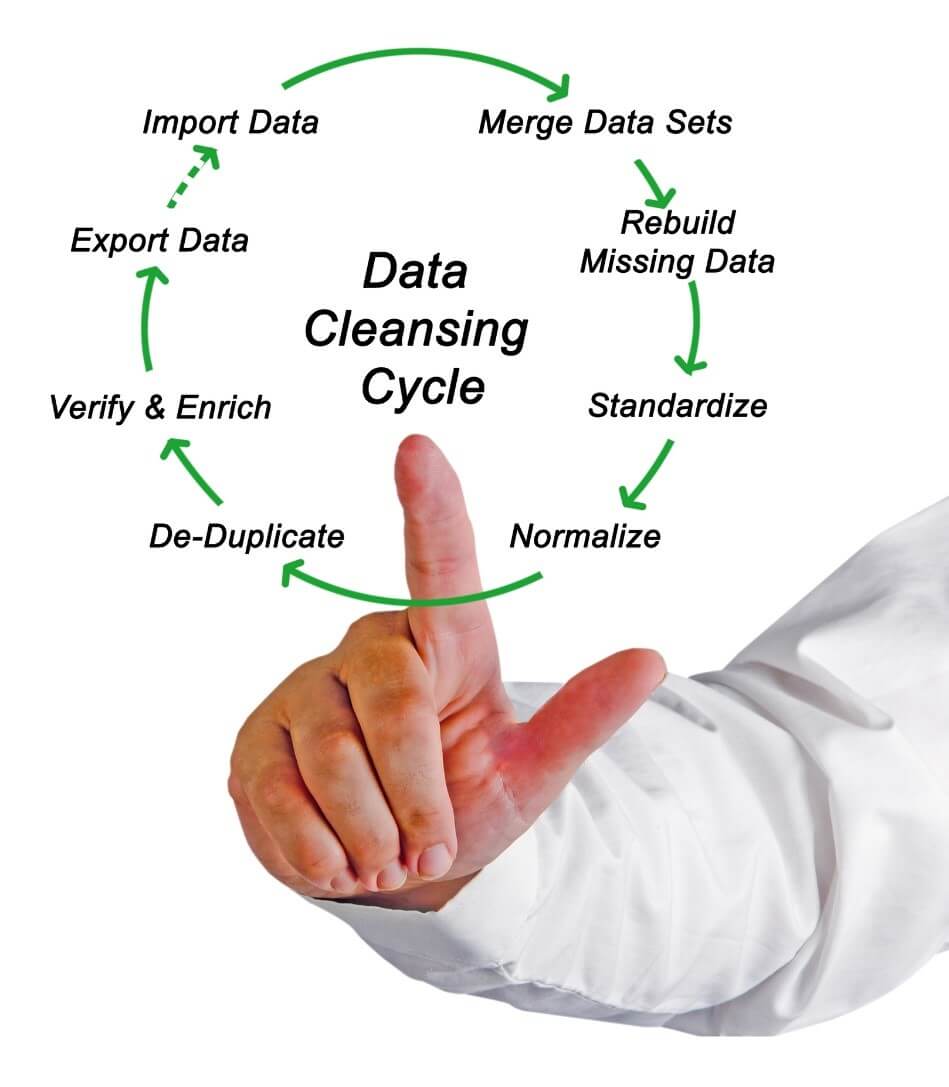Why Is Data Cleansing Necessary For Every Business?
Why Is Data Cleansing Necessary For Every Business?
In the last two decades, data has become an essential factor in business. Data science has been present since the 1960s, but it has exploded only recently. There are several reasons for this. First of all, today’s digital technologies enable businesses to gather, manage, and analyze data more efficiently.
At the same time, more data is being generated daily than ever before. This is because of the internet and the computers everyone uses today for fun or work. The third reason is that companies want to know their markets and customers before making decisions.
Simply put, it’s no longer enough to make business decisions on probable assumptions but make informed actions based on facts. Data cleansing is one of those essential data practices that help detect, remove, and correct data records to be used in the future.
Also Read – How IoT And Mobile Is Driving Business Growth?
Check out some reasons why is data cleansing necessary for every business :-
1. Data Clutter & Duplicates –
Believe it or not, data duplicates are some of the most common data issues in terms of quality. They can appear in many different ways, including exporting or importing errors, human mistakes, customer input, etc.
What’s even worse is that datasets aren’t always entirely duplicate, which would make them easy to recognize and fix. In most cases, they are partial duplicates. For example, two lists of potential leads can contain some of the same phone numbers.
This can lead to all kinds of issues, including reduced productivity, higher costs, mistakes, etc. Data cleansing is used to recognize duplicates and remove them from your database. Simultaneously, it can also spot cluttered data that has no use or is simply disrupting your processes.
2. Standardization –
When it comes to data and business overall, standardization is essential. Every business needs to have standards in which information is gathered, managed, used, and stored. If not, this can create various productivity issues, miscommunication, and lower output.
Performing data cleansing helps you recognize, change, or remove data that is structured outside of your standards. It helps bring all your data “on the same page.”
For example, if someone is sending you data that needs to be structured in a certain way, it will be difficult to use or completely useless. Data cleansing can ensure that your information is right where you need it and in a proper format.
3. Improved Filtering –
In data science, there are often situations where single units of data don’t “fit in” with the rest of the data you’re analyzing. In some situations, you can instantly recognize the reasons for this. A mistake has been made in some way, and it needs to be fixed.
For example, if you are making a data entry about your customers and notice that the data is all numerical without any reason, it needs to be fixed. This helps you improve your process and use data more accurately.
However, there are situations when the data that isn’t fitting in will help you prove something or reach a meaningful conclusion. Anomalies aren’t always incorrect, and data cleansing lets you filter out the irrelevant anomalies.
4. Data Security –
We’ve established by now that data cleansing is often about removing unwanted or those files that are a liability in some way. One of those things is personal and confidential data files. As people work, they often store various pieces of personal or business data that they use once and don’t need it anymore.
However, they leave these datasets out in the open where everyone can access them. This is how data leaks happen. Using data cleansing, you can recognize data that is not used in any way and poses various security risks.
5. Accuracy –
Data gets old pretty quickly. Business changes quickly. It’s all moving at a rapid pace, and your data needs to represent your business’s current state accurately. Data cleansing lets you do accurate analytics and maintain the accuracy of your data.
It helps you point out data that is not up to date or has changed in some way. You can’t keep old data in circulation as it can disrupt various processes, create confusion, or simply lead to bad decisions.
It’s not only about having data, but it’s also about making sure it’s accurate and reliable. This is what cleansing data helps you achieve.
6. Identify Missing Data –
Ignoring missing data pieces can be a huge mistake. A lot of programs and their algorithms won’t accept data with missing values. On the other hand, even if they do, you will get results that won’t give you accurate conclusions.
Companies often make mistakes, and they don’t add data values. On the other hand, as data gets transferred through different channels, programs can’t interpret “0” data value as missing data, leading to various issues.
With data cleansing, you can instantly find all of the missing data and adjust it accordingly, depending on its intended use.
7. Improved Decision Making –
We mentioned earlier that data cleansing helps you keep accurate data only. Having precise data means that your decisions, forecasts, and other business incentives will have better outcomes. Knowing that your data is applicable in every possible way makes it easier to rely on it and do your work with confidence.
All of your business intelligence, analytics processes, and predictions will be more accurate. All of this leads to better decision making. Some data analysts would say that your business decisions are good as your data is; think about that.
8. Managing Big Data –
When all is said in data, big data and data science are hopeless without data cleansing services. If you want to gather, systematize, and draw conclusions from data, you need data cleansing for business purposes.
There’s simply no way around that. Working with data requires extensive data mining, research, and storage. You need to make sure that your data is clean and safe to use.
Many things can go wrong, and this leads to a lot of clutter and mistakes. Cleansing data helps you ensure your data related processes are meaningful and valuable.
Conclusion –
In the end, remember that data cleansing can lead to an increase in revenue. Whether you are using data for marketing, market analysis, or customer insights, having clean data pays off. You need a large number of resources to keep your data fresh, and a clean database will help you make the right business decisions.
Also Read – Why Logistics is Necessary For Your Business?







